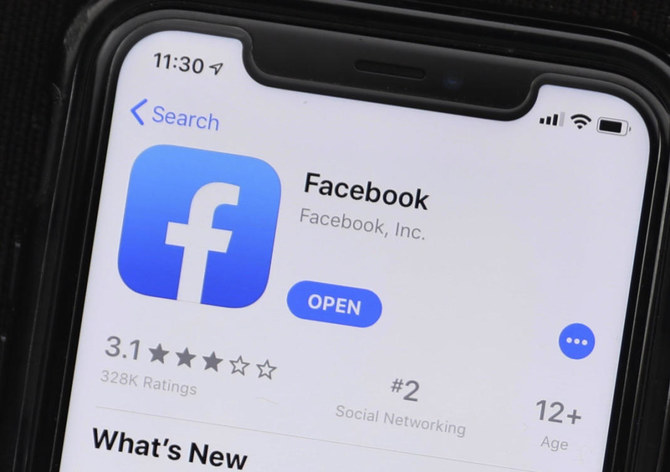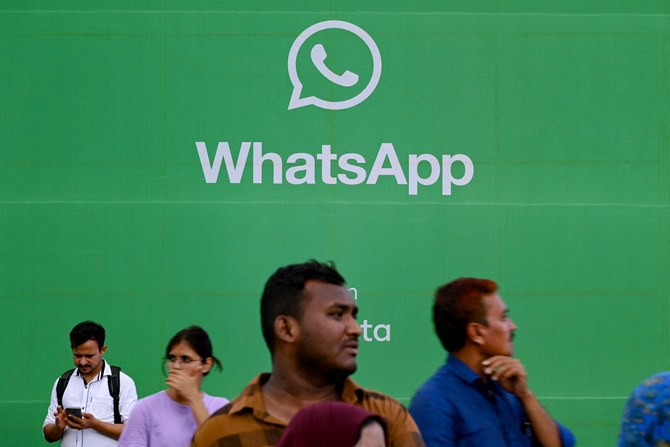Facebook is showing different job ads to women and men in a way that might run afoul of anti-discrimination laws, according to a new study.
University of Southern California researchers who examined the ad-delivery algorithms of Facebook and LinkedIn found that Facebook’s were skewed by gender beyond what can be legally justified by differences in job qualifications.
Men were more likely to see Domino’s pizza delivery driver job ads on Facebook, while women were more likely to see Instacart shopper ads.
The trend also held in higher-paying engineering jobs at tech firms like Netflix and chipmaker Nvidia. A higher fraction of women saw the Netflix ads than the Nvidia ads, which parallels the gender breakdown in each company’s workforce.
No evidence was found of similar bias in the job ads delivered by LinkedIn.
Study author Aleksandra Korolova, an assistant professor of computer science at USC, said it might be that LinkedIn is doing a better job at deliberately tamping down bias, or it might be that Facebook is simply better at picking up real-world cues from its users about gender imbalances and perpetuating them.
“It’s not that the user is saying, ‘Oh, I’m interested in this.’ Facebook has decided on behalf of the user whether they are likely to engage,” she said. “And just because historically a certain group wasn’t interested in engaging in something, doesn’t mean they shouldn’t have an opportunity to pursue it, especially in the job category.”
Facebook said in a statement Friday it has been taking meaningful steps to address issues of discrimination in ads.
“Our system takes into account many signals to try and serve people ads they will be most interested in, but we understand the concerns raised in the report,” it said.
Facebook promised to overhaul its ad targeting system in 2019 as part of a legal settlement.
The social network said then it would no longer allow housing, employment or credit ads that target people by age, gender or zip code. It also limited other targeting options so these ads don’t exclude people on the basis of race, ethnicity and other legally protected categories in the US, including national origin and sexual orientation.
Endlessly customizable ad targeting is Facebook’s bread and butter, so any limits placed on its process could hurt the company’s revenue. The ads users see can be tailored down to the most granular details — not just where people live and what websites they visited recently, but whether they’ve gotten engaged in the past six months or share characteristics with people who have recently bought new sneakers, even if they have never expressed interest in doing so themselves.
But even if advertisers can’t do the targeting themselves, the study shows what critics have stressed for years — that Facebook’s own algorithms can discriminate, even if there is no intent from the job advertisers themselves.
“We haven’t seen any public evidence that they are working on the issues related to their algorithms creating discrimination,” Korolova said.
Since it isn’t possible to show every user every advertisement that is targeted at them, Facebook’s software picks what it deems relevant. If more women show interest in certain jobs, the software learns it should show women more of these sorts of ads.
LinkedIn said the study’s findings align with its internal review of job ads targeting.
“However, we recognize that systemic change takes time, and we are at the beginning of a very long journey,” the company said in a statement.
US laws allow for ads to be targeted based on qualifications but not on protected categories such as race, gender and age. But anti-discrimination laws are largely complaint-driven, and no one can complain about being deprived of a job opportunity if they didn’t know it happened to them, said Sandra Wachter, a professor at Oxford University focused on technology law.
“The tools we have developed to prevent discrimination had a human perpetrator in mind,” said Wachter, who was not involved in the USC study. “An algorithm is discriminating very differently, grouping people differently and doing it in a very subtle way. Algorithms discriminate behind your back, basically.”
While Domino’s and Instacart have similar job requirements for their drivers, Domino’s delivery workforce is predominantly male, while Instacart’s is more than half female. The study, which looked at driver ads run in North Carolina compared to demographic data from voter records, found that Facebook’s algorithms appeared to be learning from those gender disparities and perpetuating them.
The same trend also occurred with sales jobs at retailer Reeds Jewelers, which more women saw, and the Leith Automotive dealership, which more men saw.
The researchers call for more rigorous auditing of such algorithms and to look at other factors such as racial bias. Korolova said external audits such as the USC study can only do so much without getting access to Facebook’s proprietary algorithms, but regulators could require some form of independent review to check for discrimination.
“We’ve seen that platforms are not so good at self-policing their algorithms for undesired societal consequences, especially when their business is at stake,” she said.
Study: Facebook delivers biased job ads, skewed by gender
https://arab.news/r3kus
Study: Facebook delivers biased job ads, skewed by gender

- Facebook ads were skewed by gender beyond what can be legally justified by differences in job qualifications, says University of Southern California researchers
Live video of man who set himself on fire outside court proves challenging for news organizations

- The man, who distributed pamphlets before dousing himself in an accelerant and setting himself on fire, was in critical condition
- The incident tested how quickly the networks could react, and how they decided what would be too disturbing for their viewers to see
NEW YORK: Video cameras stationed outside the Manhattan courthouse where former President Donald Trump is on trial caught the gruesome scene Friday of a man who lit himself on fire and the aftermath as authorities tried to rescue him.
CNN, Fox News Channel and MSNBC were all on the air with reporters talking about the seating of a jury when the incident happened and other news agencies, including The Associated Press, were livestreaming from outside the courthouse. The man, who distributed pamphlets before dousing himself in an accelerant and setting himself on fire, was in critical condition.
The incident tested how quickly the networks could react, and how they decided what would be too disturbing for their viewers to see.
With narration from Laura Coates, CNN had the most extensive view of the scene. Coates, who at first incorrectly said it was a shooting situation, then narrated as the man was visible onscreen, enveloped in flames.
“You can smell burning flesh,” Coates, an anchor and CNN’s chief legal analyst, said as she stood at the scene with reporter Evan Perez.
The camera switched back and forth between Coates and what was happening in the park. Five minutes after the incident started, CNN posted the onscreen message “Warning: Graphic Content.”
Coates later said she couldn’t “overstate the emotional response of watching a human being engulfed in flames and to watch his body be lifted into a gurney.” She described it as an “emotional and unbelievably disturbing moment here.”
Fox’s cameras caught the scene briefly as reporter Eric Shawn talked, then the network switched to a courtroom sketch of Trump on trial.
“We deeply apologize for what has happened,” Shawn said.
On MSNBC, reporter Yasmin Vossoughian narrated the scene. The network showed smoke in the park, but no picture where the body was visible.
“I could see the outline of his body inside the flames,” Vossoughian said, “which was so terrifying to see. As he went to the ground his knees hit the ground first.”
The AP had a camera with an unnarrated live shot stationed outside the courthouse, shown on YouTube and APNews.com. The cameras caught an extensive view, with the man lighting himself afire and later writhing on the ground before a police officer tried to douse the flames with a jacket.
The AP later removed its live feed from its YouTube channel and replaced it with a new one because of the graphic nature of the content.
The news agency distributed carefully edited clips to its video clients — not showing the moment the man lit himself on fire, for example, said executive producer Tom Williams.
Russian war correspondent for Izvestia killed in Ukraine

- Izvestia said Semyon Eremin, 42, died of wounds from a drone attack in Zaporizhzhia region
- Eremin had reported for the Russian daily from hottest battles in Ukraine during the 25-month-old war
Semyon Eremin, a war correspondent for the Russian daily Izvestia, was killed on Friday in a drone attack in southeastern Ukraine, the daily said.
Izvestia said Eremin, 42, died of wounds suffered when a drone made a second pass over the area where he was reporting in Zaporizhzhia region.
Izvestia said Eremin had sent reports from many of the hottest battles in Ukraine’s eastern regions during the 25-month-old war, including Mariupol, besieged by Russian troops for nearly three months in 2022.
He had also reported from Maryinka and Vuhledar, towns at the center of many months of heavy fighting.
WhatsApp being used to target Palestinians through Israel’s Lavender AI system

- Targets’ selection based on membership to some WhatsApp groups, new report reveals
- Accusation raises questions about app’s privacy and encryption claims
LONDON: WhatsApp is allegedly being used to target Palestinians through Israel’s contentious artificial intelligence system, Lavender, which has been linked to the deaths of Palestinian civilians in Gaza, recent reports have revealed.
Earlier this month, Israeli-Palestinian publication +972 Magazine and Hebrew-language outlet Local Call published a report by journalist Yuval Abraham, exposing the Israeli army’s use of an AI system capable of identifying targets associated with Hamas or Palestinian Islamic Jihad.
This revelation, corroborated by six Israeli intelligence officers involved in the project, has sparked international outrage, as it suggested Lavender has been used by the military to target and eliminate suspected militants, often resulting in civilian casualties.
In a recent blog post, software engineer and activist Paul Biggar highlighted Lavender’s reliance on WhatsApp.
He pointed out how membership in a WhatsApp group containing a suspected militant can influence Lavender’s identification process, highlighting the pivotal role messaging platforms play in supporting AI targeting systems like Lavender.
“A little-discussed detail in the Lavender AI article is that Israel is killing people based on being in the same WhatsApp group as a suspected militant,” Bigger wrote. “There’s a lot wrong with this.”
He explained that users often find themselves in groups with strangers or acquaintances.
A lot of difficult questions for Meta before that trust can be rebuilt, and I don't honestly believe that Meta can or will answer them pic.twitter.com/vaeLbg9hx3
— Paul Biggar (@paulbiggar) April 16, 2024
Biggar also suggested that WhatsApp’s parent company, Meta, may be complicit, whether knowingly or unknowingly, in these operations.
He accused Meta of potentially violating international humanitarian law and its own commitments to human rights, raising questions about the privacy and encryption claims of WhatsApp’s messaging service.
The revelation is just the latest of Meta’s perceived attempts to silence pro-Palestinian voices.
Since before the beginning of the conflict, the Menlo Park giant has faced accusations of double standards favoring Israel.
In February, the Guardian revealed that Meta was considering the expansion of its hate speech policy to the term “Zionist.”
More recently, Meta quietly introduced a new feature on Instagram that automatically limits users’ exposure to what it deems “political” content, a decision criticized by experts as a means of systematically censoring pro-Palestinian content.
Responding to requests for comment, a WhatsApp spokesperson said that the company could not verify the accuracy of the report but assured that “WhatsApp has no backdoors and does not provide bulk information to any government.”
Eastern European mercenaries suspected of attacking Iranian journalist Pouria Zeraati

- UK security services believe criminal proxies with links to Tehran carried out London knife attack
LONDON: Police said on Friday that a group of Eastern European mercenaries is suspected to have carried out the knife attack on Iranian journalist Pouria Zeraati in late March.
Zeraati was stabbed repeatedly by three men in an attack outside his south London home.
The Iran International presenter lost a significant amount of blood and was hospitalized for several days. He has since returned to work, but is now living in a secure location.
Iran International and its staff have faced repeated threats, believed to be linked to the Iranian regime, which designated the broadcaster as a terrorist organization for its coverage of the 2022 protests.
Iran’s charge d’affaires, Seyed Mehdi Hosseini Matin, denied any government involvement in the attack on Zeraati.
Investigators revealed that the suspects fled the UK immediately after the incident, with reports suggesting they traveled to Heathrow Airport before boarding commercial flights to different destinations.
Police are pursuing leads in Albania as part of their investigation.
Counterterrorism units and Britain’s security services leading the inquiry believe that the attack is another instance of the Iranian regime employing criminal proxies to target its critics on foreign soil.
This method allows Tehran to maintain plausible deniability and avoids raising suspicions when suspects enter the country.
Zeraati was attacked on March 29 as he left his home home to travel to work. His weekly show serves as a source of impartial and uncensored news for many Iranians at home and abroad.
In an interview with BBC Radio 4’s “Today” program this week, Zeraati said that while he is physically “much better,” mental recovery from the assault “will take time.”
Court orders release of prominent Palestinian professor suspected of incitement

- Nadera Shalhoub-Kevorkian was under investigation after questioning Hamas atrocities, criticizing Israel
- Insufficient justification for arrest, says court
- Detention part of a broader campaign, says lawyer
LONDON: The prominent Hebrew University of Jerusalem professor, Nadera Shalhoub-Kevorkian, was released on Friday after a court order rejected police findings.
The criminologist and law professor was arrested the previous day on suspicion of incitement. She had been under investigation for remarks regarding the Oct. 7 attacks by Hamas and for saying Israelis were committing “genocidal crimes” in the Gaza Strip and should fear the consequences.
On Friday, the court dismissed a police request to extend her remand, citing insufficient justification for the arrest, according to Hebrew media reports.
Protesters gathered outside the courthouse to demonstrate against Shalhoub-Kevorkian’s arrest.
Israeli Channel 12, which first reported the news, did not specify where Shalhoub was arrested but her lawyer later confirmed she was apprehended at her home in the Armenian Quarter of Jerusalem.
“She’s not been in good health recently and was arrested in her home,” Alaa Mahajna said. “Police searched the house and seized her computer and cellphone, [Palestinian] poetry books and work-related papers.”
Mahajna described Shalhoub-Kevorkian’s arrest as part of a broader campaign against her, which has included numerous threats to her life and of violence.
The professor was suspended by her university last month after calling for the abolition of Zionism and suggesting that accounts of sexual assault during the Hamas-led attacks on Israel were fabricated.
The suspension was initially criticized by the university community as a blow to academic freedom in Israel. However, the decision was later reversed following an apology from Shalhoub-Kevorkian and an admission that sexual assaults took place.
Since hostilities began last year, numerous dissenting voices in Israel have faced arrest for expressing solidarity with victims of the bombardment in Gaza.
In October, well-known ultra-Orthodox Israeli journalist Israel Frey was forced into hiding following a violent attack on his home.
Bayan Khateeb, a student at the Technion-Israel Institute of Technology, was arrested last year for incitement after posting an Instagram story showing the preparation of a popular spicy egg dish with the caption: “We will soon be eating the victory shakshuka.”






















